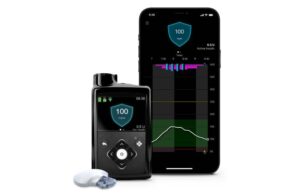
FDA deemed the recall Class I, the most serious kind.
The medtech giant issued a field action starting on July 31, notifying customers to follow built-in alerts for battery status. Customers should contact Medtronic if they observe changes in the battery life of their pump.
Medtronic said it began investigating an issue after receiving reports of shortened battery life. A comprehensive analysis found that pumps that have been dropped, bumped or experienced physical impact even once may face shortened battery life. The company attributed this issue to damage to internal electrical components.
This electrical issue also causes battery alerts to occur when less battery life remains than the user guide states. That could lead to the pump stopping insulin delivery significantly sooner than usually expected. In turn, this can lead to health risks like hyperglycemia or diabetic ketoacidosis (DKA), potentially requiring medical intervention.
Medtronic received 170 reports of hyperglycemia >400mg/dL and 11 reports of diabetic ketoacidosis from January 2023 to September 2024 in the U.S., all potentially related to this issue.
According to Medtronic, even a single drop can lead to shortened battery life and the issue continues even after battery replacement. The pump can still generate battery alerts and alarms, but they may not come with the usual amount of battery life remaining before it requires replacement. The company says users should always carry an extra set of new or fully charged batteries.
”Medtronic began proactively notifying impacted pump users in July because of the high priority we place on patient safety and understand the important role of pumps in the care and management of diabetes,” said Dr. Robert Vigersky, chief medical officer, Medtronic Diabetes. “Our team is here 24 hours a day, 7 days a week to help if you experience battery depletion or any other issue with your pump. Patient safety is our priority, as is continuity of therapy, which is why we made the decision to voluntarily notify patients and will replace pumps when needed.”
